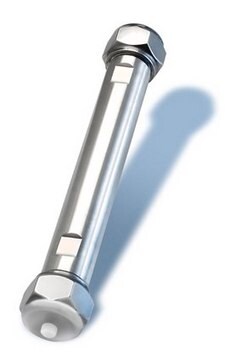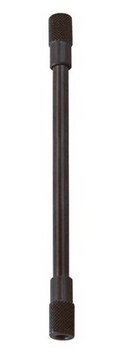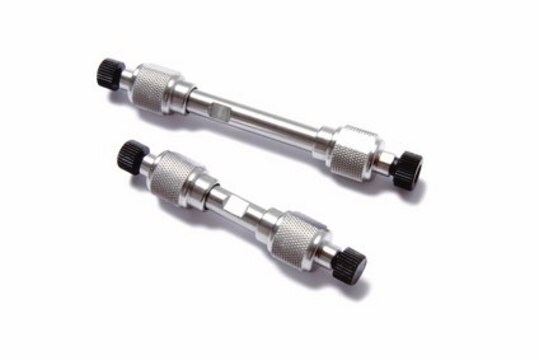1.50653
Purospher® STAR RP-18 endcapped (3 µm)
L × I.D. 100 mm x 2.1 mm Hibar® HR UHPLC column
Synonym(s):
Purospher® STAR RP-18 endcapped (3µm) Hibar® HR 100-2.1
About This Item
Recommended Products
material
stainless steel column
Quality Level
Agency
suitable for USP L1
product line
Purospher®
feature
endcapped
packaging
1 ea of
extent of labeling
17% Carbon loading
parameter
1000 bar pressure
65 °C max. temp.
technique(s)
HPLC: suitable
LC/MS: suitable
UHPLC-MS: suitable
UHPLC: suitable
mass spectrometry (MS): suitable (High)
column L × I.D.
10 cm × 2.1 mm
surface area
330 m2/g
matrix
fully porous particle
matrix active group
C18 bonding phase
particle size
3 μm
pore size
120 Å pore size
operating pH range
1.5-10.5
separation technique
reversed phase
supercritical fluid (SFC)
storage temp.
no temp limit
Related Categories
General description
Application
Features and Benefits
- Ultra-pure silica (99.999%) for excellent peak symmetry
- High separation efficiency
- Reproducible results from run-to-run and batch-to-batch
- Best all-round performance according to Tanaka
- Outstanding pH stability from pH 1.5 to 10.5
- No phase collapse when using highly aqueous mobile phases
- Good suitability for LC-MS applications
Analysis Note
Theoretical Plates (N/m) (1,2-Benzanthracene): ≥ 130000
Symmetry (1,2-Benzanthracene): 0.8 - 1.4
Capacity factor (1,2-Benzanthracene): 7.0 - 10.0
Legal Information
Certificates of Analysis (COA)
Search for Certificates of Analysis (COA) by entering the products Lot/Batch Number. Lot and Batch Numbers can be found on a product’s label following the words ‘Lot’ or ‘Batch’.
Already Own This Product?
Find documentation for the products that you have recently purchased in the Document Library.
Articles
Xanthine is a purine base found in most human body tissues and fluids as well as in other organisms. Methylated xanthines (methylxanthines), which include caffeine, paraxanthine, theobromine, and theophylline, commonly used for their effects as mild stiµlants and as bronchodilators, notably in the treatment of asthma symptoms. This application shows the efficient separation of several common xanthines and may be applied their analysis in any number of desired matrices.
Protocols
broad spectrum insecticide, egradation product, phenylpyrazole pesticide, World Health Organization (WHO), HPLC, UV, testing of Fipronil and Fipronil sulfone in Food
Our team of scientists has experience in all areas of research including Life Science, Material Science, Chemical Synthesis, Chromatography, Analytical and many others.
Contact Technical Service



